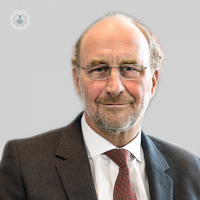Should I freeze my eggs?
Written in association with:Women generally used to get pregnant at an earlier age, but nowadays as many women delay starting a family we are seeing an older age group attending fertility clinics for help in getting pregnant. Unfortunately, there is little we can do to help them as the underlying reason for not getting pregnant is poor egg quality due to age. Although lifestyles have changed over the years, unfortunately the human biological clock has not. This can put pressure on a woman, as they only have so much time before they can no longer have babies.

Why freeze your eggs?
A common misconception of why many women freeze their eggs is because they want to focus on their career and do not have time to raise a family. This is not always the case, however. Many women freeze their eggs as they do not have a partner, or they have not found the right one with whom they want to settle down and start a family. By freezing their eggs, they therefore ease the burden of having to find somebody before their biological clock runs out. Not having a partner is the primary reason for an estimated 88% of women who have had their eggs frozen, compared to 24% whose main reason is for professional reasons.
A woman is born with all her eggs and these are used up every month during menstruation even when she is not trying to get pregnant. At age 33, around 30% of the embryos women create will have chromosomal abnormalities. This has a negative impact on attempts at pregnancy as most of these embryos do not implant, and those that do usually miscarry. By the time women reach 40 years of age, almost 90% of their embryos are abnormal. Their chances of having a successful pregnancy, therefore, are significantly reduced.
Egg freezing as an insurance policy
It is therefore worth considering freezing eggs in your early 30s to give yourself the best chance of having a baby. Many women will not need to use them because they will most likely meet somebody with whom they want to have a child before they are too old to do so. Consider egg freezing as an insurance policy, and like all insurance policies you hope you will never have to use them. If the necessity should arise, however, you can be thankful you took out the policy in the first place.
Age is an important factor to take into account when contemplating whether you want to freeze your eggs or not. If you freeze your eggs before you reach 33, you have an 85% chance of getting pregnant when you want to use them. If you wait till 38, the chance of conceiving with your frozen eggs falls to less than 20%. This is a substantial difference, hence the reason specialists recommend that it is best to freeze your eggs sooner rather than later to increase your chances of success.
How much does it cost to freeze your eggs?
Egg freezing is not cheap and costs around £4000 to £5000 per cycle, but there are very few risks, and for women who can afford to do so, it is a sensible precaution.
Take home message:
Freezing eggs is best done early, preferably before 35, for the procedure to be more effective. Unfortunately, freezing eggs does not always guarantee a pregnancy It is recommended for women who know they will be unable to try to conceive until they are older.


